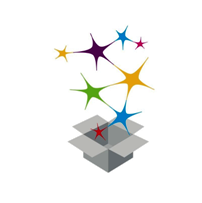The Lisbon strategy points out the need for creativity, sense of initiative and entrepreneurship. Skills that goes far beyond an academic standpoint, the issues of employability, adaptability and sense of initiative and entrepreneurship is critical to both the short and long term development of Europe. It has been concluded by the European Council that "promoting creativity and innovation is an area which quality and efficiency could benefit from cooperation at European level” (2008/C/141/10).
Here you can find the partnership consortium: who is who
The ECECC project - Embedding a Culture of Enterprise and Creativity in the Curriculum therefore aims to promote creativity and entrepreneurial spirit within the school curriculum in Europe. This by giving teachers the opportunity to test different methods in a safe environment at a recurrent European educational event by using a no contextual dependent method i.e. focus is on the effects in the classroom.
The primary target group is teachers in school education, the secondary target group is school managers at the same level.
The main outputs of the ECECC project are:
- European Entrepreneurial Education Event (EEE); including Education & training, Workshop, Paper-conference
- Trans national workshops
- Educational studies; Best-practice & Analysis (didactic onset focusing on the effects)-web based, Handbook – hard copy (in partner language)
- Owner, exploitation, sponsor agreements of the EEE
- Website
- Handbook created with the inputs of European teachers
- Final Evaluation Report
The ECECC project is a in progress activity, which has been involving the partners in a creative development of a learning process.
The expected long term impact of the ECECC is to deepen and develop the creative and entrepreneurial learning both through education possibilities as well as on a more scientific note.
In the short term perspective it will give teachers in Europe access to training opportunities as well as “hands-on” knowledge concerning creativity and entrepreneurial learning though transfer of know-how.
More then 1700 participants from the target group are planned to participate/be reach directly within the scope of the project, with numerous more reached indirectly though the web, colleagues etc.


